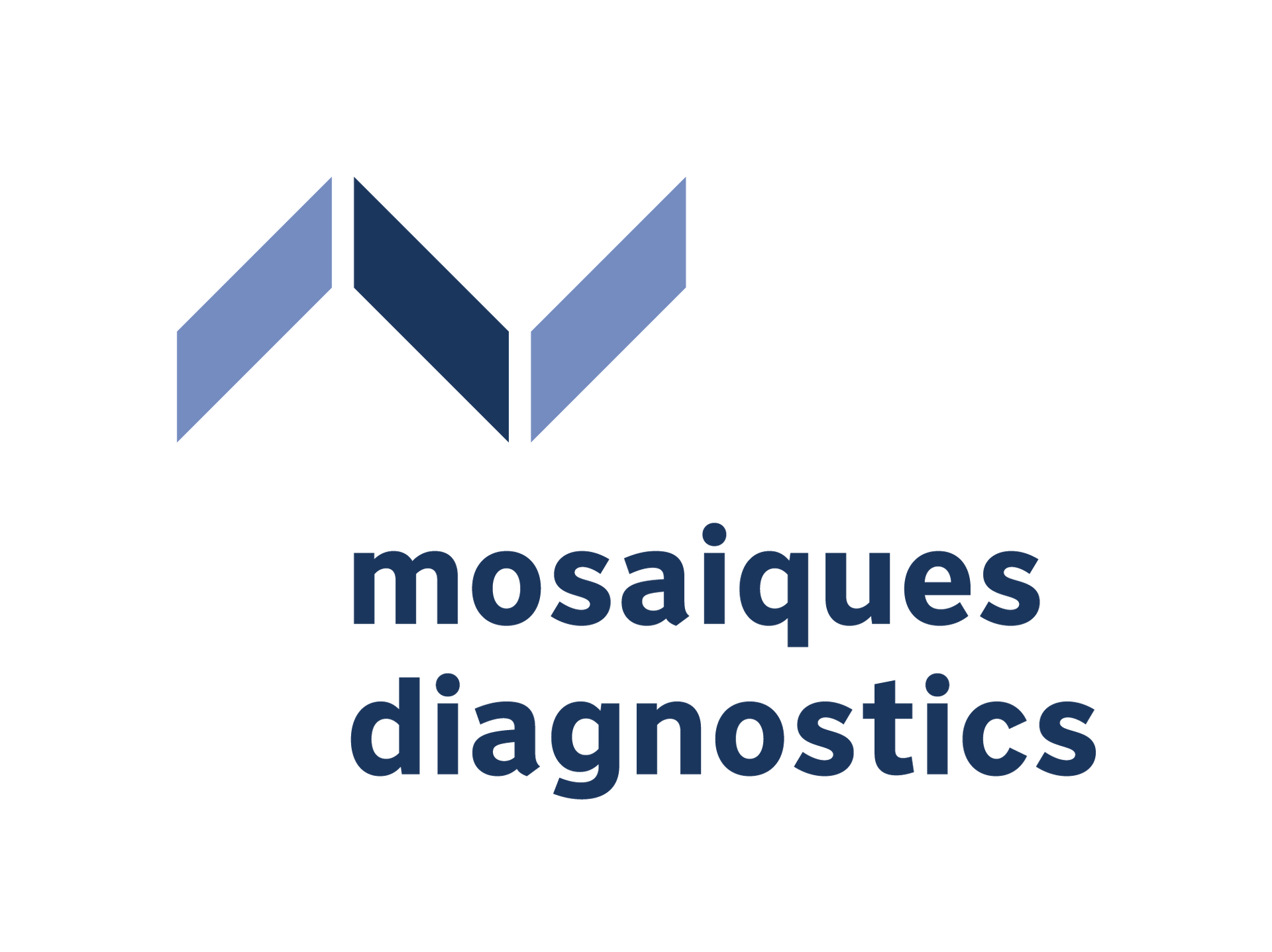Mosaiques Diagnostics & Therapeutics AG
The mosaiques diagnostics & therapeutics AG was established in Hannover (Germany).
The company’s core competence is the early and reliable detection of diseases enabling personalized medicine during therapy and drug development. The company utilizes diagnostic peptide patterns derived from the fast and accurate analysis of proteins and peptides in body fluids (e.g. urine, bile).

For this purpose, mosaiques has developed a unique technology on the basis of clinical proteome analysis, enabling the early and differential detection of cardiovascular, kidney, biliary and urogenital diseases. Furthermore, diagnostic tests for additional indications, such as pancreatic cancer and nephrotoxic effects of drugs are in development. Diagnosis is accomplished by highly specific patterns of multiple simultaneously detected biomarkers (proteins/peptides) from patient samples obtained in a risk-free and painless procedure. Mosaiques utilizes high resolution capillary electrophoresis coupled mass spectrometry (CE-MS technology), which enables the separation of body fluids in less than one hour. Proprietary software affords the analysis of huge amounts of data within minutes.
The overall principle of this ground-breaking technology is the fact that proteins are indispensable for the function of cells and organs, as well as for all communication inside the body. They also catalyze chemical reactions and protect the body against pathogens. Thousands of proteins and peptides are involved in these processes, forming a distinct pattern, which changes with disease. Mosaiques identifies up to 6,000 of such proteins and polypeptides and subsequently generates disease specific patterns. This vast wealth of information facilitates accurate diagnosis of diseases and enables effective therapy prior to serious organ damage.
In focus: Urine is the specimen of choice for clinical proteome analysis, since urine can be obtained in large quantities from a non-invasive procedure and contains thousands of proteins and polypeptides that hold specific information on the (patho)physiology of each individual. In addition, urine is much more stable in its composition compared to blood, but contains not a lesser prominent variety of informative biomolecules, which are indicative of the patient’s state of health.
The technology, as well as the clinical application, has been published in over 400 high ranking journals, including, but not limited to: Nature Medicine, Blood, JASN, Lancet Oncology, and Mass Spectrometry Reviews. These high ranking scientific publications have established mosaiques as the leading player in the field of clinical proteome analysis, and have also resulted in the definition of standard practices within the clinical proteomics field and the construction of an unique academic framework of worldwide collaborations with over 85 Universities and research institutes (e.g. Harvard, UVA, NIH, FDA, INSERM, University of Glasgow, Steno Diabetes Center, etc.). Mosaiques also performs clinical trials in cooperation with the pharmaceutical industry, enabling improvement of therapy and therapeutics, based on an individual's molecular peptide signature.
Diagnosis of bladder and prostate cancer, chronic kidney diseases, cardiovascular diseases, Graft-versus-Host Disease, and cholangiocarcinoma is already marketed in Germany through the subsidiary protexam GmbH. The combination of different indications enables the comprehensive and non-invasive examination of the patient’s state of health via the xken-health test. In the upcoming months the mosaiques group plans to expand sales and distribution on the European market. Mosaiques’s peptide pattern technology has been proven in multiple blinded clinical studies on over 85,000 qualified patient samples from different pathological alterations:
| Indication/Disease | Sample | Sensitivity | Specificity | Status |
|---|---|---|---|---|
| Chronic kidney disease [1] | Urine | 86 | 98 | in the market |
| Heart failure | Urine | 69 | 94 | in the market |
| Coronary artery disease [2] | Urine | 79 | 88 | in the market |
| Prostate cancer (yes/no) | Urine | 93 | 69 | in the market |
| Prostate cancer (aggressivity) | Urine | 88 | 65 | in the market |
| Primary bladder cancer | Urine | 85 | 75 | in the market |
| Bladder cancer recurrence | Urine | 86 | 61 | in the market |
| Severe course of Covid-19 | Urine | 87 | 75 | in the market |
| Cholangiocarcinoma | Urine + Bile | 92 | 84 | in the market |
| GvHD after allo-HSCT | Urine | 82 | 77 | in the market |
GvHD: Graft versus Host Disease
allo-HSCT: allogeneic Hematopoietic Stem Cell Transplantation
[1]: prediction of onset of macroalbuminurea up to 4.5 years in advance
[2]: patients with stable angina can not yet been reliably diagnosed
